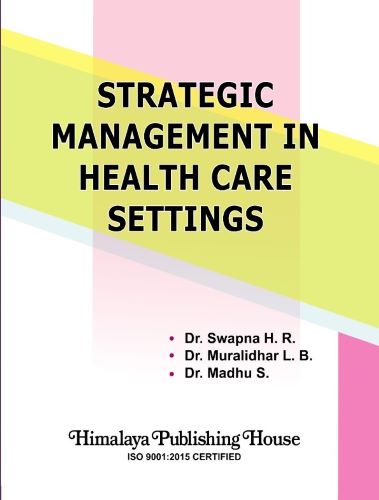In today’s rapidly evolving healthcare landscape, students and professionals face immense pressure to keep up with cutting-edge practices, strategic frameworks, and quality standards that shape the success of healthcare organizations. This book offers a comprehensive guide to mastering the complexities of strategic management, quality control, and innovation in healthcare, ensuring that readers are equipped to navigate the competitive and highly regulated healthcare environment effectively.
This textbook serves as a bridge between academic knowledge and practical application. Students can develop a solid foundation in healthcare management by understanding key concepts such as strategic intent, business models, competitive advantage, and core competencies. In addition, the detailed exploration of quality management philosophies, accreditation processes, and audits offers practical tools and techniques to enhance patient care and operational efficiency. Students will also gain insights into the role of technology and innovation, preparing them to be future leaders in a healthcare industry undergoing constant change.
This book provides valuable content for healthcare professionals that helps refine management strategies and improve service delivery. Professionals can optimize resource allocation and organizational growth by diving deep into competitive strategies like cost leadership and differentiation. The sections on quality standards and accreditation equip readers to achieve higher patient safety and care standards. In contrast, the audit and patient satisfaction evaluation chapters will enable continuous improvement in clinical outcomes. Moreover, the focus on innovation and integrating public and private healthcare sectors will guide professionals in adopting new technologies and processes to meet evolving patient needs.
Overall, this book is an essential resource for both students aspiring to build careers in healthcare management and professionals seeking to enhance their leadership skills, operational effectiveness, and commitment to quality in healthcare delivery.
Contents –
UNIT 1 INTRODUCTION
Strategic Intent Concepts; Healthcare Organization’s Vision, Mission, Goals and Objectives-Business Models-Policy and Values; Balance Score Card, Critical Success Factors; Key Performance Indicators in Healthcare Setting; Competition in Healthcare Business
UNIT 2 STRATEGY FORMULATION AND IMPLEMENTATION
Competitive Advantage in Terms of Facilities and Services – Cost Leadership and Differentiation in Healthcare Delivery – Core Competence in Healthcare Organizations – Growth and Expansion of Organizations – Mergers and Acquisitions, Outsourcing – Role, and Emergence of Technology -Resource Allocations – Supportive Culture – Strategic Leadership – Corporate Culture – Functional and Operational Implementation
UNIT 3 QUALITY IN HEALTHCARE
Concept and Significance – Quality Management Philosophies – Patient Focus and Involvement – TQM Models – Quality Tools and Techniques Applied to Healthcare – Continuous Quality Improvement – Quality Circles
UNIT 4 QUALITY ACCREDITATION
Meaning and Benefits of Quality Accreditation – Quality Standards – Quality of Patient Care, Focus and Safety – Accreditation Process – National and International Bodies for Accreditation in Healthcare – ISO, QCI, NABH & JCI – Statutory Compliance
UNIT 5 AUDIT IN HEALTHCARE
Concurrent, Terminal, and Cyclic Evaluation – Healthcare, Medical, Nursing, Clinical, Pharmacy and Antibiotic Audits – Patient Satisfaction Surveys – Integration of Healthcare Systems
UNIT 6 INNOVATIONS IN HEALTHCARE
Innovation Process, Innovations in Healthcare Delivery – Public and Private, Technology, New Product Development
CASE STUDIES







